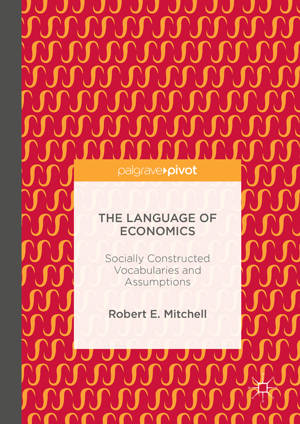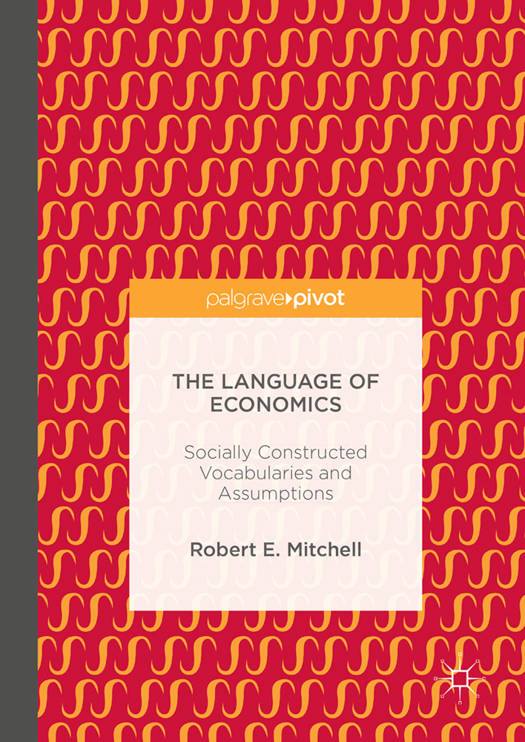
- Afhalen na 1 uur in een winkel met voorraad
- Gratis thuislevering in België vanaf € 30
- Ruim aanbod met 7 miljoen producten
- Afhalen na 1 uur in een winkel met voorraad
- Gratis thuislevering in België vanaf € 30
- Ruim aanbod met 7 miljoen producten
Zoeken
The Language of Economics
Socially Constructed Vocabularies and Assumptions
Robert E Mitchell
Hardcover | Engels
€ 83,95
+ 167 punten
Omschrijving
This Palgrave Pivot demonstrates that the inherited vocabularies of economics and other social sciences contain socially constructed words and theories that bias our very understanding of history and markets, bridging the empirical and moral dimensions of economics in general and inequality in particular. Wealth, GDP, hierarchies, and inequality are socially constructed words infused with moral overtones that academic philosophers and policy analysts have used to raise questions about "fairness" and "justice." This short intellectual and epistemological history explores and elaborates a limited number of key inequality-related terms, concepts, and mental images invented by centuries of economists and others. The author challenges us to question the assumptions made concerning presumably value-free concepts such as inequality, wealth, hierarchies, and the policy goals a nation can be pursuing.
Specificaties
Betrokkenen
- Auteur(s):
- Uitgeverij:
Inhoud
- Aantal bladzijden:
- 131
- Taal:
- Engels
Eigenschappen
- Productcode (EAN):
- 9783319339801
- Verschijningsdatum:
- 9/08/2016
- Uitvoering:
- Hardcover
- Formaat:
- Genaaid
- Afmetingen:
- 160 mm x 216 mm
- Gewicht:
- 308 g

Alleen bij Standaard Boekhandel
+ 167 punten op je klantenkaart van Standaard Boekhandel
Beoordelingen
We publiceren alleen reviews die voldoen aan de voorwaarden voor reviews. Bekijk onze voorwaarden voor reviews.








